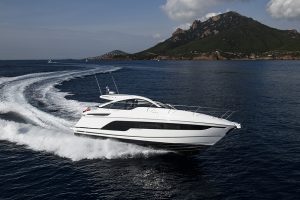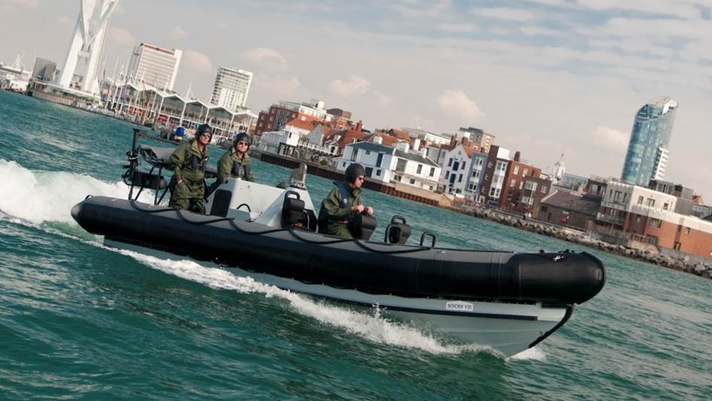Sea piracy drops to 21 year low
Latest figures from the International Maritime Bureau reveal piracy and armed robbery at sea has fallen to its lowest levels since 1995.
A new report shows a drop in piracy and armed robbery at sea.
However, there has been an increase in kidnappings off the West African coast.
The figures for January-June 2016 have been compiled by the International Chamber of Commerce’s International Maritime Bureau (IMB).
Its Piracy Reporting Centre is the world’s only independent office to receive reports of pirate attacks, 24-hours-a-day, from across the globe.
IMB’s global piracy report shows 98 incidents in the first half of 2016, compared with 134 for the same period in 2015.

When piracy was at its highest, in 2010 and 2003, IMB recorded 445 attacks a year.
In the first half of 2016, IMB recorded 72 vessels boarded, five hijackings, and a further 12 attempted attacks.
Nine ships were fired upon.
Sixty-four crew were taken hostage onboard, down from 250 in the same period last year.
The director of IMB, Captain Pottengal Mukundan described the drop in world piracy as “encouraging news.”
“Two main factors are recent improvements around Indonesia, and the continued deterrence of Somali pirates off East Africa,” he explained.
“But ships need to stay vigilant, maintain security and report all attacks, as the threat of piracy remains, particularly off Somalia and in the Gulf of Guinea,” added Captain Mukundan.

The findings reveal that Nigeria is the world’s piracy kidnapping hotspot.
Despite global improvements, kidnappings are on the rise, with 44 crew captured for ransom in 2016, 24 of them in Nigeria, up from 10 in the first half of 2015.
“In the Gulf of Guinea, rather than oil tankers being hijacked for their cargo, there is an increasing number of incidents of crew being kidnapped for ransom,” noted Captain Mukundan.
Nigerian attacks are often violent, accounting for eight of the nine vessels fired upon worldwide.
IMB says many further assaults go unreported by shipowners.

IMB reported two further kidnap incidents off Sabah, Malaysia, where tugs and barges were targeted.
In early June, a tug and barge were hijacked off Balingian, Sarawak in Malaysia; the cargo of palm oil was stolen.
The IMB says there has been a fall in the number of incidents in Indonesia.
There were 24 recorded cases in the first six months of 2016, compared with 54 in the same period in 2015.
This is attributed to improvements in security at sea and in ports. Designated anchorages with improved security have been introduced by the Indonesian authorities.
IMB has also applauded the Indonesian Navy’s prompt response in recovering a hijacked product tanker, south of Pulau Serutu, off west Kalimantan in May.
“This is exactly the type of robust response required in response to such threats,” it said.
Nine pirates were apprehended and the crew of the tanker unharmed.
In May, Indonesia, Malaysia and the Philippines agreed to conduct coordinated patrols to target piracy in the Celebes Sea that borders all three countries.
Many of the kidnappings for the first half of 2016 are reported to have been carried out by just one group – the Islamist militant Abu Sayyaf.
On 18 August, 2016, it was reported that two of the group’s hostages from a captured tugboat had escaped.
The other hostages – nine Indonesians, five Malaysians, one Norwegian, and a Dutchman – are still being held.
The IMB Piracy Reporting Centre is based in Kuala Lumpur, and has been supporting the shipping industry, authorities and navies for 25 years.
All shipmasters and owners are encouraged to report all actual, attempted and suspected piracy and armed robbery incidents to the local authorities as well as the IMB Piracy Reporting Centre.
The IMB says this first step in the response chain is “vital to ensuring that adequate resources are allocated by authorities to tackle piracy”.
It adds that transparent statistics from an independent, non-political, international organisation can “act as a catalyst to achieve this goal”.
The IMB’s findings for January-June 2016 comes following media reports on 17 August, 2016 that an Malaysian oil tanker had been hijacked and taken to Indonesia.
These were later dismissed by the authorities in both countries. It was later revealed that the vessel had sailed to Indonesia following a dispute between the tanker’s owners and its crew.
BAE Systems has been awarded £13.5m by the Royal Navy to build 60 new lightweight rapid response boats for the… Two incidents of armed piracy against sailing vessels reported in the Caribbean in the last 10 days have prompted an… The boat carrying the guns seized by the French Navy was thought to be heading to SomaliaRoyal Navy orders next generation boats to fight piracy and drugs
Warning after sailing vessels targeted by armed pirates
French Navy seizes arsenal of illegal weapons in the Indian Ocean












